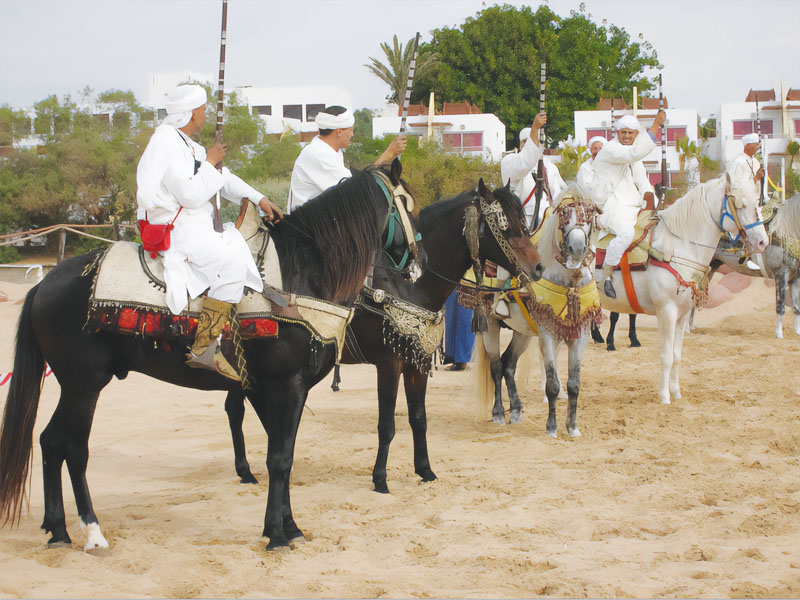Al Najmah
Issue 13

Zazia Barkouki (Tunisia)
Al Najmah (The Star) is a ceremony held to celebrate occasions such as weddings and circumcisions. A set of social practices shape the ceremony, which usually begins with women singing ‘Al Tanwirah’ and ‘Sabaqnak’ and ends with ‘Dam Al Farah’. In the interim, there are Bedouin songs special to Al Najmah, such as ‘Al Tawahi’. The diversity of the songs in the middle of Al Najmah ensures repeat attendance at a multi-night event that usually lasts until dawn.

As a cultural phenomenon, Al Najmah represents a significant legacy of oral traditions, customs and arts.
Scholars agree on the role of art in human life, defining art as “one of the most widespread manifestations of culture in societies” and stating that man tends, by nature, to express his sense of beauty and perhaps music is foremost among the arts in refining the public’s taste and expressing cultural traditions and customs.

Al Najmah: Roles and Aspects
Al Najmah includes songs that reflect values that the community wishes to preserve and pass on to the next generation.
Al Najmah is a way of passing songs down through the generations.
Al Najmah is a public form of entertainment that acts as a creative outlet for the participants, a reprieve from everyday life and concerns.
Al Najmah plays an essential role in preserving historic tales of tribal conflicts.
Al Najmah is a performance art that features professional female singers, songs and the audience. The audience members influence the performance and the choice of songs with their reactions.

Al Najmah includes ritual practices, mime, gesturing and colours.
Al Najmah represents the concerns and aspirations of the performers and the community.
Al Najmah is often performed to celebrate circumcisions, weddings and historic victories.







































































